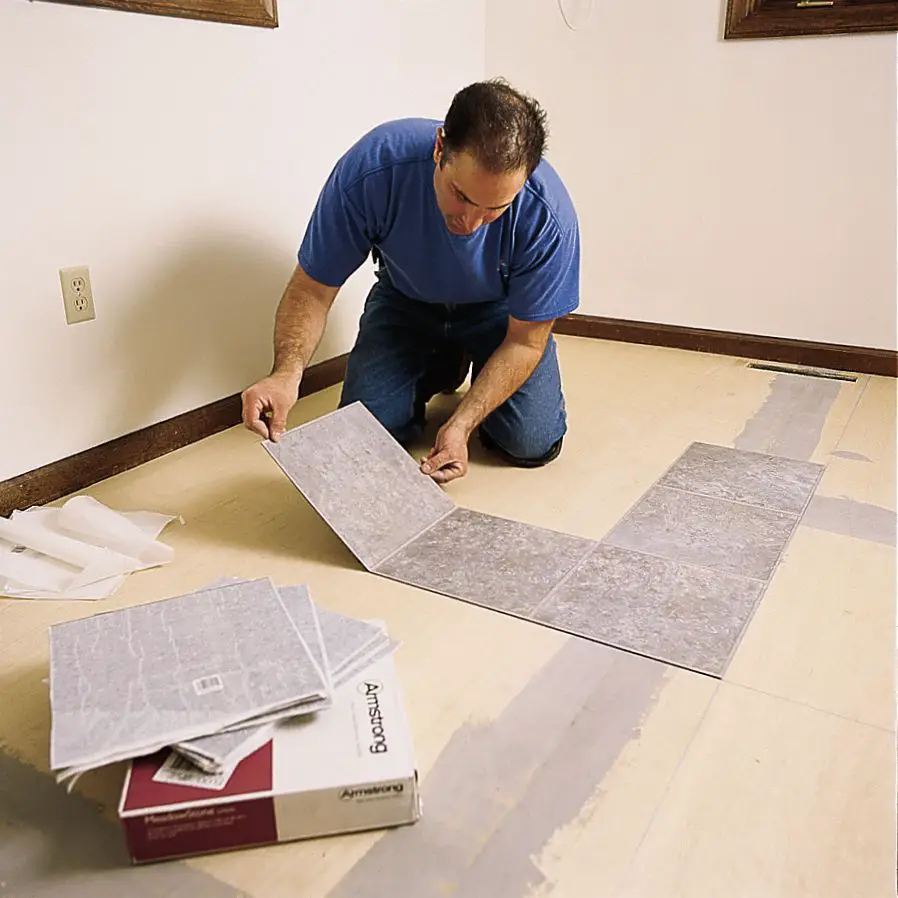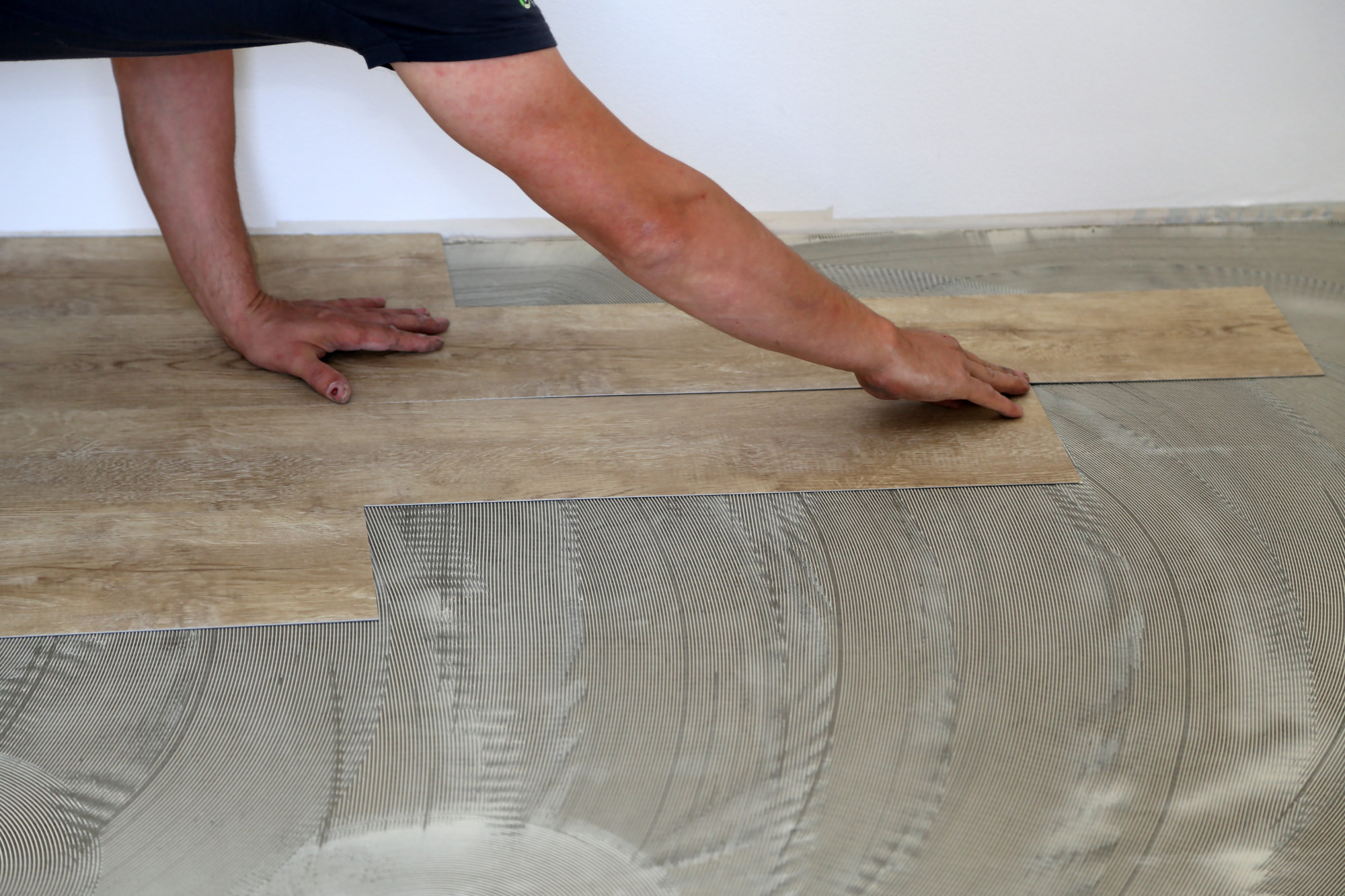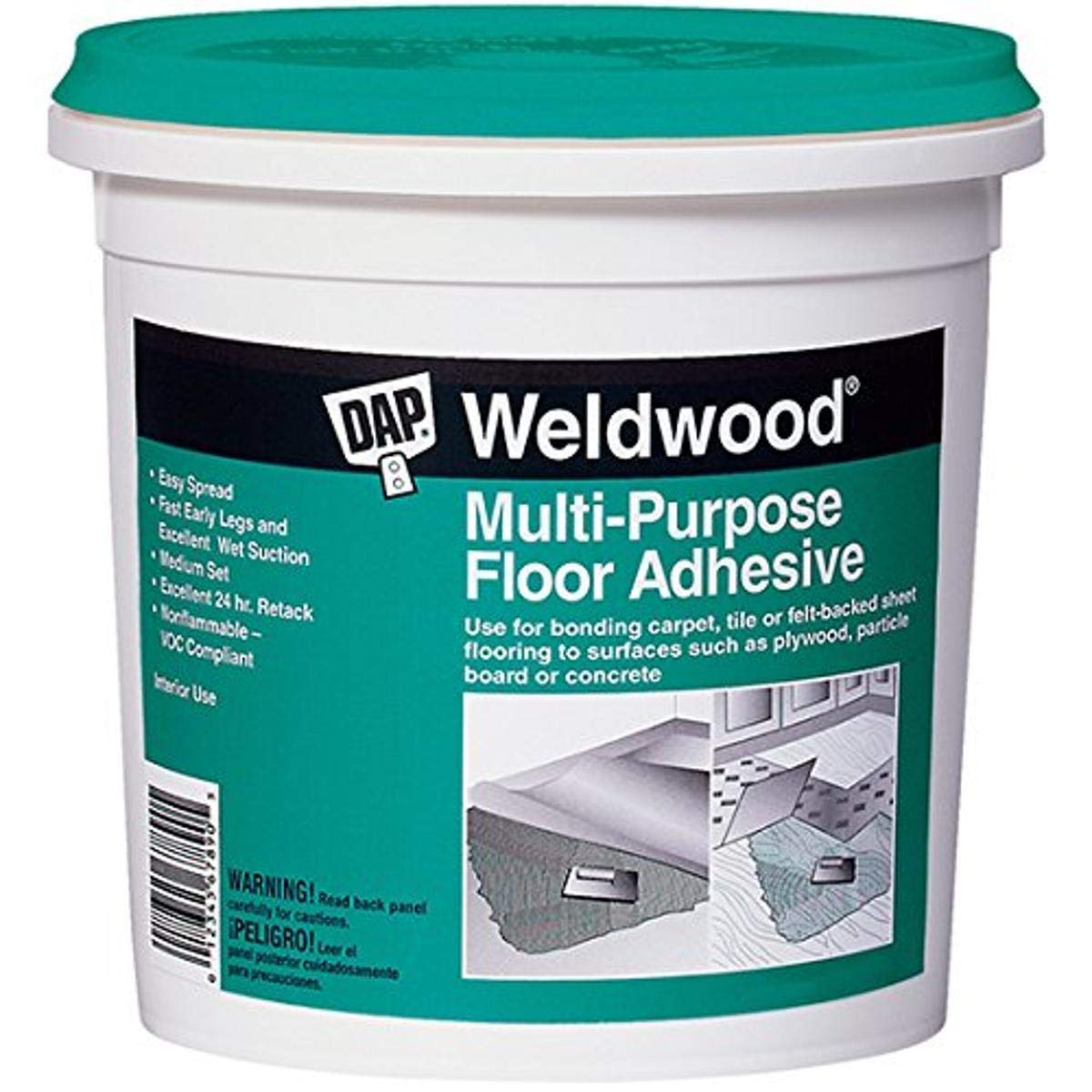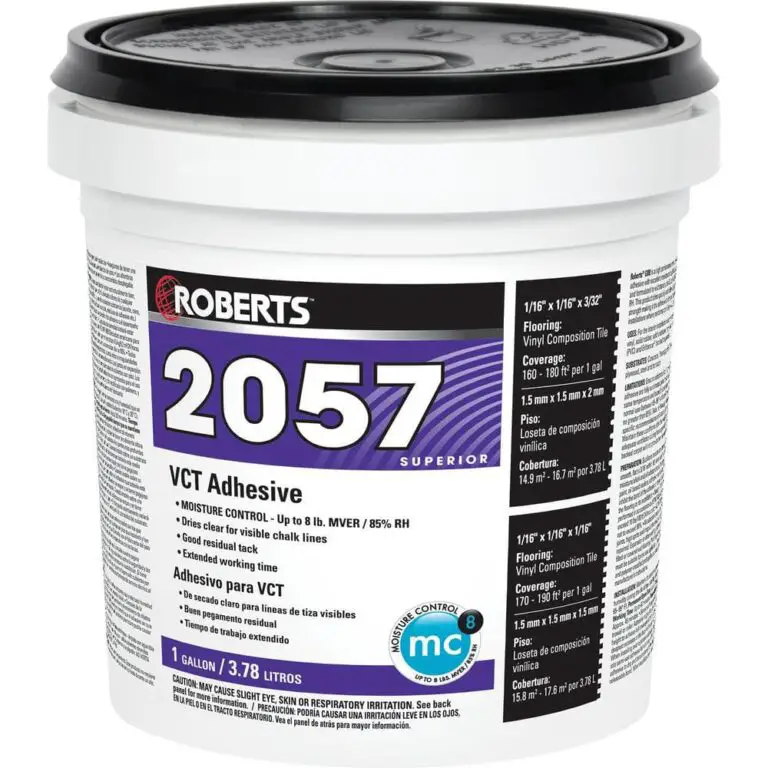Vinyl flooring is a popular choice for many homes and businesses due to its durability and resilience. When installing vinyl flooring, it is important to choose the right type of glue in order to ensure a successful installation. There are two main types of glue that can be used for vinyl flooring: vinyl adhesive and contact cement. Vinyl adhesive is a water-based adhesive that is specifically designed for use with vinyl flooring. Contact cement is a solvent-based adhesive that can be used with a variety of different materials, including vinyl.
When choosing a glue for vinyl flooring, it is important to consider the type of vinyl flooring being installed. For instance, if the vinyl flooring is thick, then a stronger adhesive, such as contact cement, may be necessary. If the vinyl flooring is thin, then a weaker adhesive, such as vinyl adhesive, may be sufficient. It is also important to consider the environment in which the vinyl flooring will be installed. If the area is subject to high humidity or moisture, then a waterproof adhesive, such as contact cement, should be used. If the area is relatively dry, then a non-waterproof adhesive, such as vinyl adhesive, may be sufficient. In general, vinyl adhesive is the best choice for most vinyl flooring installations. However, contact cement may be necessary for some types of vinyl flooring or in certain environments.
What kind of glue do you use on vinyl flooring

There are several types of glue that can be used on vinyl flooring, including vinyl adhesive, contact cement, and epoxy. Each type of glue has its own advantages and disadvantages, so it is important to choose the right one for your project. Vinyl adhesive is the most popular choice for attaching vinyl flooring to a substrate, as it is easy to use and provides a strong bond. Contact cement is another popular choice, as it dries quickly and provides a very strong bond. However, it can be difficult to work with and is not recommended for beginners. Epoxy is a stronger and more durable alternative to vinyl adhesive, but it is more difficult to use and is not recommended for beginners.
What glue to use to hold down the vinyl floor?
There are a few different types of glue that can be used to hold down vinyl flooring. One type of glue is vinyl adhesive, which is specifically designed for use with vinyl flooring. This type of glue is typically applied with a trowel and can provide a strong bond between the vinyl and the subfloor. Another type of glue that can be used is contact cement. This type of glue is applied to both the vinyl and the subfloor and then allowed to dry before the two surfaces are pressed together. This type of glue can provide a very strong bond between the vinyl and the subfloor.
Will epoxy stick to vinyl flooring?
It is important to note that not all epoxy adhesives are created equal. Some are stronger than others and some are more resistant to heat and moisture. When choosing an epoxy adhesive for vinyl flooring, it is important to select one that is specifically designed for that purpose.
Can you use spray adhesive on vinyl flooring?
Spray adhesive can be used on vinyl flooring, but it is not the best option. It is difficult to control the amount of adhesive that is applied, and it can be difficult to evenly distribute the adhesive. If not done correctly, the adhesive can cause the vinyl flooring to bubble and peel.
How to remove glued vinyl flooring?
If you need to remove glued vinyl flooring, there are a few things you’ll need to do.
- First, score the vinyl flooring with a utility knife.
- This will help the adhesive remover penetrate the flooring.
- Next, apply a generous amount of adhesive remover to the floor and let it sit for about 15 minutes.
- After that, use a putty knife or scraper to remove the flooring.
- You may need to use a little elbow grease, but eventually the flooring should come up.
What type of adhesive do you use for vinyl flooring

There are two types of adhesives that can be used for vinyl flooring: water-based and solvent-based. Water-based adhesives are easier to clean up and are less likely to cause damage to the vinyl. Solvent-based adhesives are more durable and provide a stronger bond, but they can be more difficult to work with.
Do you need adhesive for vinyl flooring?
There is no need for adhesive when installing vinyl flooring. The flooring planks or tiles are designed to fit together snugly, and can be laid directly onto the subfloor. However, you may want to use adhesive in areas where the vinyl meets other flooring types, such as carpet or tile. This will help to create a seamless transition and prevent the vinyl from slipping.
How do you get vinyl flooring to stick?
To install vinyl flooring, you need to use an adhesive. There are many different types of adhesives that can be used for vinyl flooring, but the most common one is called PVC adhesive. PVC adhesive is a strong adhesive that can be used to bond PVC to other surfaces. It is important to make sure that the surface is clean before you apply the adhesive. You also need to make sure that the adhesive is applied evenly to avoid any air bubbles.
How do you keep vinyl flooring in place?
There are several ways to keep your vinyl flooring in place.
- One way is to use an adhesive vinyl flooring primer before applying the adhesive. This will help the adhesive to bond to the vinyl better.
- Another way is to use a double-sided tape around the perimeter of the room. This will help to keep the vinyl in place and prevent it from moving.
What is the best adhesive for PVC?
This type of glue is specifically designed to adhere to PVC, and it will create a strong bond that will last for many years. It is important to make sure that the surface is clean and free of any dirt or debris before applying the adhesive, and it is also important to follow the manufacturer’s instructions carefully.
What glue do you use for vinyl plank flooring?
If you’re looking to install vinyl plank flooring, you’ll need to use a good quality adhesive. There are many different types of adhesives on the market, so it’s important to choose one that’s specifically designed for vinyl flooring. This will ensure that your flooring is properly secured and that the adhesive won’t damage the vinyl.
What type of self adhesive vinyl should I use?
There are many types of self-adhesive vinyl available on the market, and it can be confusing to know which one to use. If you are looking for a vinyl flooring adhesive, it is important to choose one that is specifically designed for that purpose. Otherwise, you may find that the adhesive does not hold up well or that it leaves a sticky residue. When it comes to choosing an adhesive for vinyl flooring, you want to make sure that it is strong enough to hold the vinyl in place but not so strong that it is difficult to remove later on. You also want to make sure that the adhesive will not damage the flooring surface.
Some adhesives are specifically designed for use with vinyl flooring, so this is something to keep in mind when making your selection. If you are not sure which type of adhesive to use for your vinyl flooring, it is always best to consult with a professional. They will be able to advise you on the best product to use based on your specific needs.
What type of glue is used for vinyl flooring

There are several types of glue that can be used for vinyl flooring, but the most common is acrylic adhesive. This type of glue is strong and durable, making it ideal for high- traffic areas. It is also waterproof, which is important for floors that will be subject to moisture.
How do you glue down vinyl flooring?
There are a few different types of glue that can be used to adhere vinyl flooring to a subfloor, but one of the most common and effective options is urethane-based adhesive. This type of glue creates a strong bond between the vinyl and the subfloor, and is typically applied with a trowel. To apply the adhesive, you will first need to spread it onto the subfloor using the trowel. Once the adhesive is in place, you can then lay down the vinyl flooring. Be sure to work quickly and efficiently so that the adhesive does not have a chance to dry before the vinyl is in place.
Once the vinyl is down, use a roller to push it into the adhesive and create a strong bond. You may also need to use a utility knife to trim away any excess vinyl or adhesive. Allow the flooring to dry for at least 24 hours before walking on it or moving any furniture into the room.
What type of adhesive do you use for linoleum flooring?
This type of adhesive is easy to apply and provides a strong bond between the linoleum and the subfloor. Other types of adhesives that can be used for linoleum include pressure-sensitive adhesives and solvent-based adhesives.
